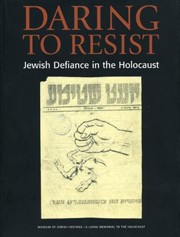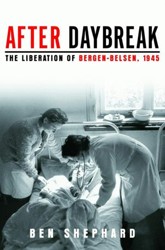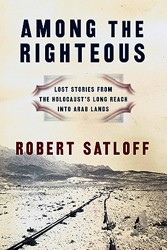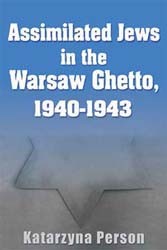Historian Alon Confino’s book is one of the most original and suggestive theoretical responses to the Holocaust to have appeared in recent years. Unlike most Holocaust scholars who have analyzed the phenomenon from the perspective of the history of anti-Semitism; the social psychology of the killers and collaborators; the technology of the killing process; the brutalization ethos created by World War II; or a comparative genocide approach, Confino examines the Holocaust as a problem in cultural history. Detailed accounts of what happened during the Nazi period are certainly necessary but they are not sufficient to capture the elements of the strangeness, and the passion of the Nazi killers, a passion whose essence is fantasies about a nonexistent Jewish threat to destroy Germany. He contends that the Nazis’ exterminationist fantasy about Jews was at once rooted in European and Christian culture and a revolutionary attempt to inaugurate a new temporal order, a world without Jews. In this sense, its aim was to save European civilization and world history, not simply Germany. He analyzes the culture and sensibilities that made it possible for the Nazis, other Germans, and Europeans to imagine the making of a world without Jews. As a problem in cultural history that fantasy was, for Confino, the revolutionary achievement of the Nazis — to make the imagination of a world without Jews and Judaism possible. How and why that happened are key to understanding the Shoah, more so than the examination of social ideology or the context of war. The question is not only how ideology and context made the Holocaust possible but also what was the ground of culture and sensibilities that made it conceivable to begin with.
To understand the Holocaust as an extreme historical event that uncovers general problems of historical interpretation, he identifies and works through the four bedrocks of historical understanding: the problem of beginnings and ends, of context, of contingency, and of culture. To help with this process he seeks insights from the way historians interpreted another violent and foundational event in modern European history — the French Revolution.
Foundational Pasts is a brilliant, lucid, and accessible meditation on interpretations of the Holocaust and suggestions on the limitations of that research and new directions to be pursued. It will surely generate much reflection on how the Shoah should be understood.
Join a community of readers who are committed to Jewish stories
Sign up for JBC’s Nu Reads, a curated selection of Jewish books delivered straight to your door!





